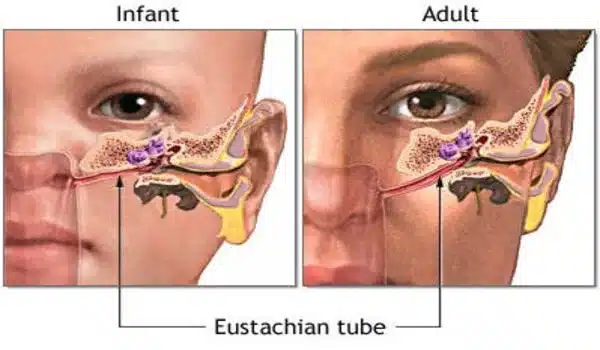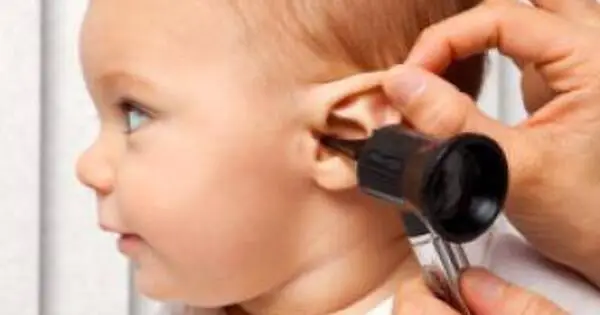Chronic ear infections can induce brief, repetitive hearing loss that can have long-term consequences for language skills. Ear infections are a normal childhood experience, but a recent study recommends that parents should take them seriously to protect their children’s language development. This is because each ear infection has the potential to damage hearing by causing fluid to build up behind the eardrum.
According to new research from the University of Florida, recurrent ear infections can cause repeated, transient hearing loss in children, resulting in problems in auditory processing and language development years later.
“Ear infections are so common that we often dismiss them as having no long-term consequences. “All ear infections should be taken seriously,” said Susan Nittrouer, lead researcher and UF professor of speech, language, and hearing sciences in the College of Public Health and Health Professions. “Parents should be aware that their child may have some middle ear fluid without it being painful and work with their doctor to monitor their child closely.”
Ear infections are so common that we often dismiss them as having no long-term consequences. All ear infections should be taken seriously. Parents should be aware that their child may have some middle ear fluid without it being painful and work with their doctor to monitor their child closely.
Susan Nittrouer
Nittrouer and Joanna Lowenstein, a researcher at the UF Health Clinical and Translational Science Institute, investigated the auditory processing and language development of 117 children aged 5 to 10, both with and without a history of chronic ear infections in early infancy.
On average, children with several ear infections before three years of age had smaller vocabularies and a harder time matching similar-sounding words than children with few or no ear infections. They also had difficulty detecting changes in sounds, a sign of problems in their brain’s auditory processing centers.
One takeaway, Nittrouer says, is for parents, physicians, and speech pathologists to continue monitoring children long after the last preschool earache fades away. Some language deficits may only reveal themselves in later grades.
“As children go through school, the language they’re required to use becomes more complex,” said Nittrouer.

Nittrouer and Lowenstein used three tests to evaluate language development and auditory processing. In one test, children had to choose which of three charming cartoon creatures sounded different from the other two. This entailed changing how the patterns of loudness, or amplitude, evolve over time.
“The better you can recognize this change in amplitude across time, the better you’re going to be able to recognize the structure of speech,” says Nittrouer.
The second challenge required children to name pictures shown to them, as a measure of their vocabulary size. Finally, children were asked to match words depending on whether they began or finished with the same speech sound, a task critical not only for speech development but also reading acquisition.
According to Nittrouer, treating ear infections early can help prevent fluid buildup that interferes with language development. If ear infections are prevalent and fluid accumulates, tubes inserted temporarily in the eardrum can help drain the fluid and restore hearing, reducing the risk of central auditory pathway development delays and language acquisition difficulties.
In November, the researchers published their findings in the International Journal of Pediatric Otorhinolaryngology. They intend to expand this study to include children at risk for auditory development delays due to other factors, such as premature delivery.














